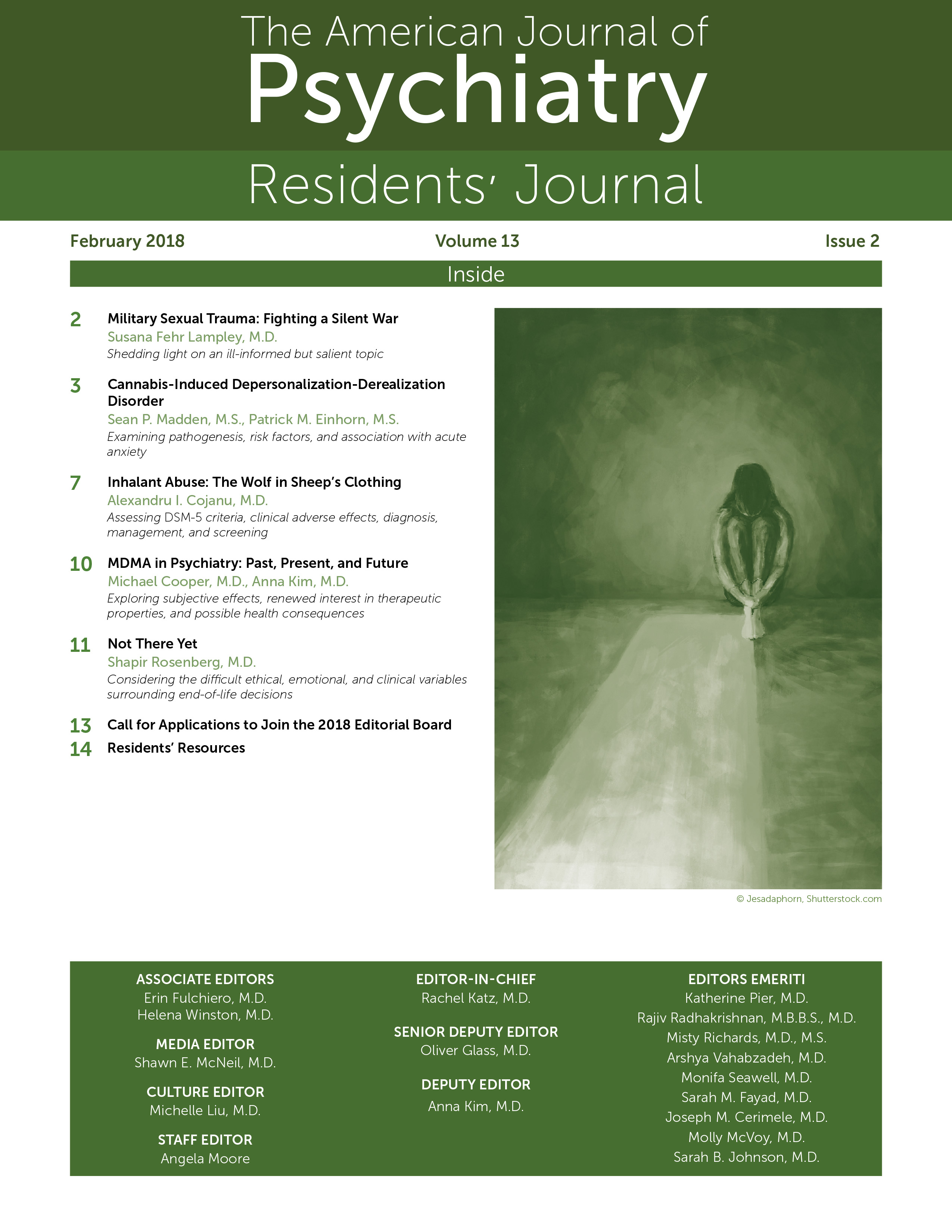3,4-Methylenedioxymethamphetamine (MDMA), commonly referred to as "Ecstasy," is a ring-substituted phenethylamine that is structurally similar to both mescaline and methamphetamine. MDMA is characterized by its unique subjective effects, including euphoria, a feeling of love for others, and a sense of being at peace with the world, while not significantly affecting visual perception or cognition (
1).
Its idealized, publicized, "Zen"-like impact poses a stark contrast to a largely controversial history. Merck first synthesized the substance in 1912 in a search for a precursor to hydrastinine, a hemostatic drug, to which archrival Bayer already held the patent. Records of subsequent animal studies were destroyed in Allied bombing raids during World War II. It was not until the 1950s that interest in MDMA was rekindled by the U.S. Army in hopes that it could be used as a form of mind control or a weapon. The United States lost interest once it was found that the effects of the drug were not much different from the effects of other stimulants (
2).
Research on MDMA took a turn once curious chemists in university and industry settings realized its potential therapeutic properties. Alexander Shulgin, a former Dow Chemical employee, resynthesized the compound as part of an intellectual musing in 1965 and eventually tried MDMA himself 2 years later. In mental health and academic circles, word spread of the many positive experiences individuals had using the drug, namely in response to its striking effects on empathy and communication. Due to concerns over its potential for abuse and increasing availability on the street, however, it was designated as a schedule I substance in 1985 (
2). To this day, discussions about its therapeutic use continue among academics, sparking novel ideas and inciting firmly held opinions and debate.
Despite the potential therapeutic use of MDMA, it is not without possible health consequences. Neuroimaging studies have found evidence for decreased serotonin transporter binding in abstinent MDMA users, which may contribute to deficits in attention, executive function, and memory among this population (
3). Another potential risk of MDMA use is that of deep-seated thoughts and feelings facilitated by the drug that might emerge in the course of a therapeutic session, which may be overly distressing, particularly with inexperienced therapists. A period of nondrug therapy may then be required to resolve the newly emerged problems (
4).
Potential health consequences notwithstanding, results from recent phase II studies suggest that MDMA-assisted psychotherapy might be a promising new treatment for posttraumatic stress disorder (PTSD). In addition to enhancement of bonding and trust, it is hypothesized that defenses against certain themes may be diminished while under the influence of MDMA, thereby facilitating more active therapeutic work. One of the studies included in a meta-analysis by Amoroso and Workman (
5) revealed that participants who ingested MDMA reported that their worst memories were less negative compared with those who had not ingested the drug, suggesting that the drug could be well suited for treating PTSD.
MDMA has an undeniably checkered history, and its use is not without risks. However, its unique subjective effects, when paired with psychotherapy, hold promise as a novel therapeutic intervention for PTSD and potentially for other psychiatric disorders.
